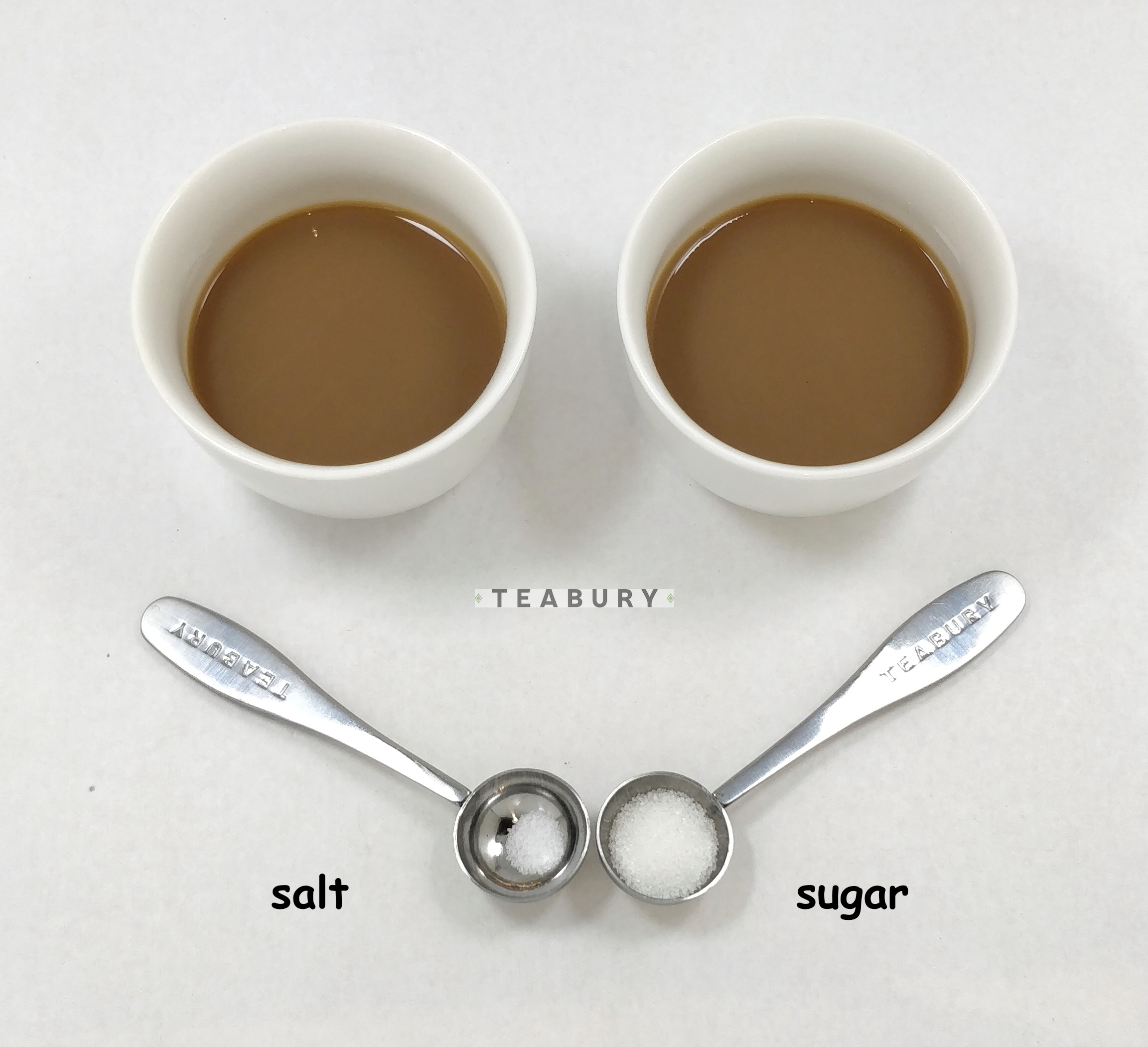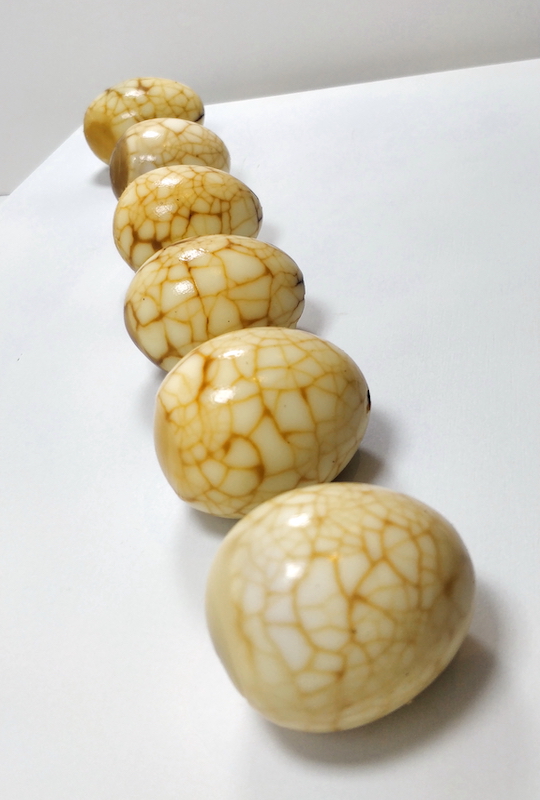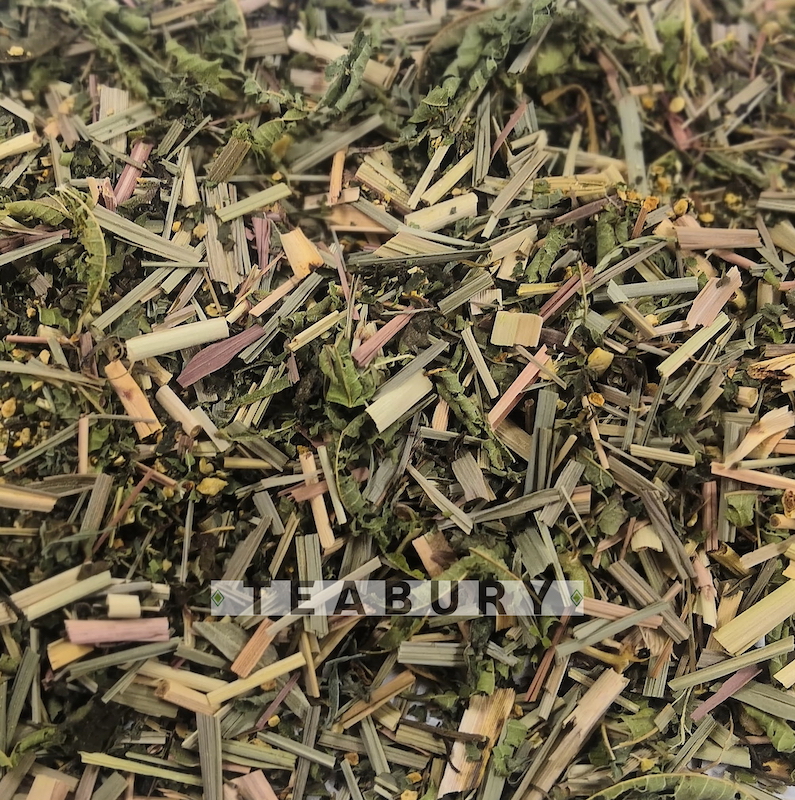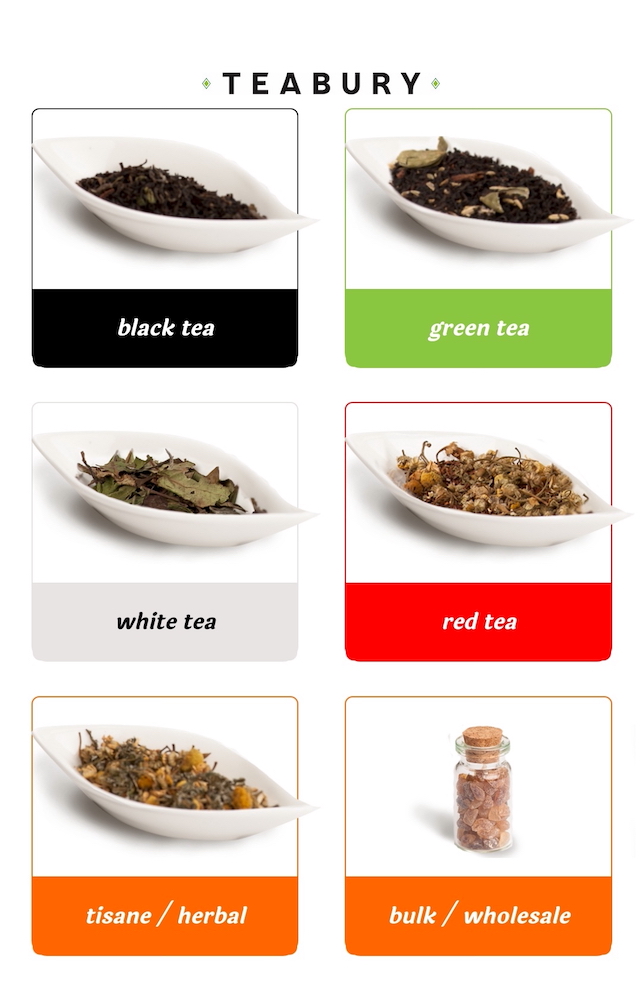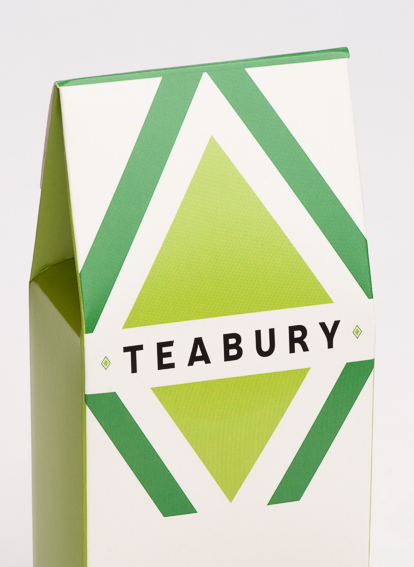Marble Tea Egg
Sometimes the simple things like the Marble Tea Egg are the easiest to make, most beautiful to look at and delicious in taste. I was introduced to marble eggs when ordering a Chinese meal in UK, received by complete surprise just by the look of the egg, very unusual and beautiful, yet was disappointed with the taste when I took my first bite, it tasted just like a hard-boiled egg!
My disappointment got me thinking, why go to the trouble of making such a beautiful looking egg only to be let down by it’s ordinariness of taste. Please do not get me wrong, I love hard-boiled eggs, especially for breakfast in the morning with a slice of wholegrain toast, or for a good hearty brunch made up of slice of bread and a big handful of mixed salad, or even for a quick afternoon snack, grabbed straight from the fridge eaten on it’s own. When biting in to my first marble egg experience, it got me thinking, could I produce a beautiful looking egg with the taste that is so much more than if I had simply boiled the egg in water for 6-8mins?
Making my own Marble Tea Egg
That’s when I started my journey in making a Teabury Marble Tea Egg and I am very happy with the results. Not only do the eggs look spectacular but they taste so great too. They have become a regular feature in our kitchen and fridge. I hope you enjoy cooking them just as much as me. To follow the recipe scroll down the page.
Traditionally, tea egg is a Chinese savoury sold as street food, at local markets and served in restaurants. Associated with Chinese cooking, it is also recognised in different variations throughout Asia. Once you learn how to cook a tea egg, it will be very easy to understand the eggs were originally cooked this way to help preserve them for longer.
Overall technique is simple, the boiled egg is slightly cracked then boiled again in tea infused with spices and a rich sauce. The marble effect comes from the tea mixture seeping into the cracks of the egg’s shell to create darkened lines mirroring beautiful marble-like patterns. No two tea eggs will ever be the same in it’s marble-like pattern, just like human finger prints, or patterns of a zebra – no two are the same!
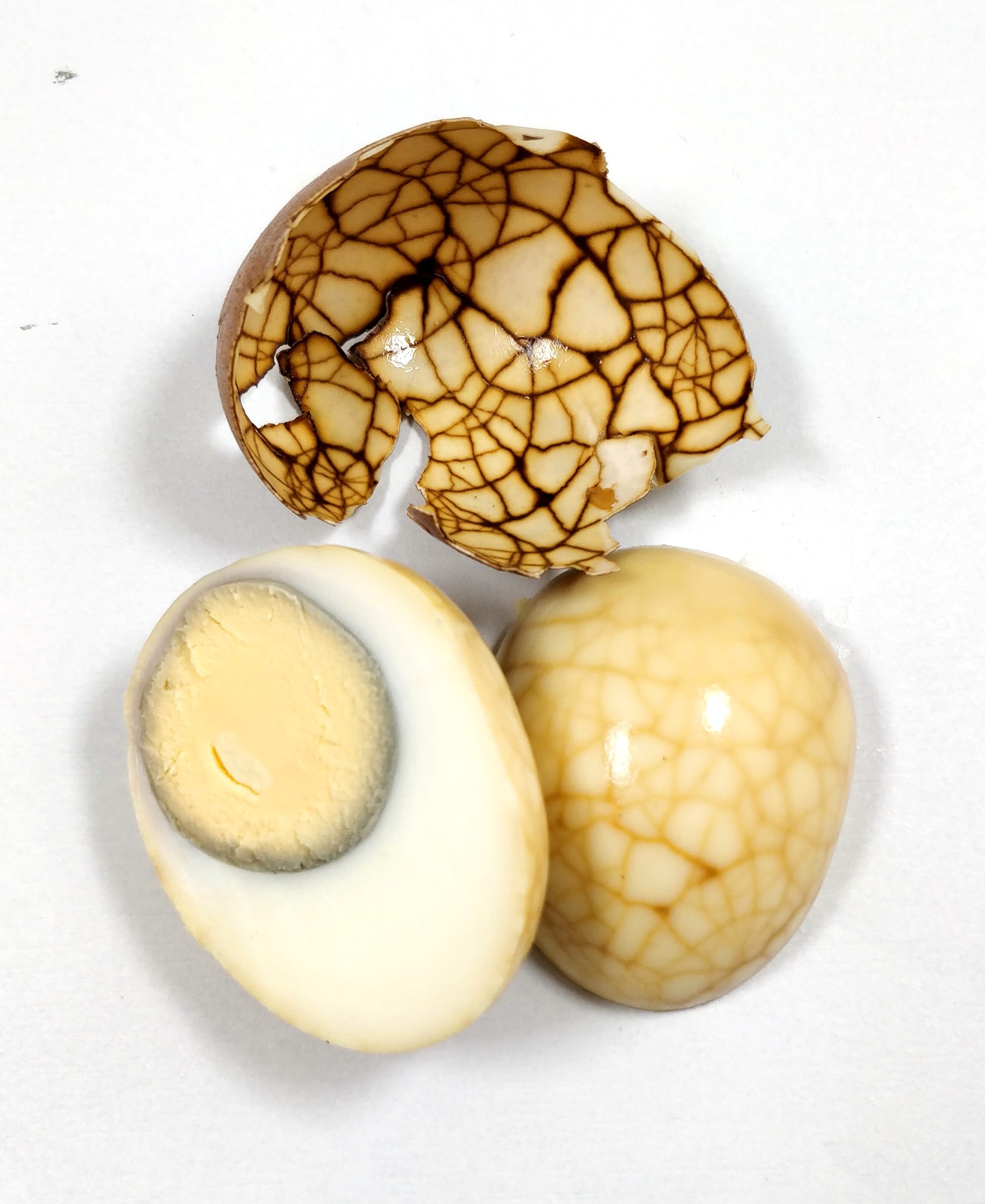
How to cook Teabury Marble Tea Egg. Let’s get started…
Time duration
Preparation: 3mins
Or the time it takes for you to boil a kettle for a cup of tea
Cooking: 30mins
Or the time it takes you to enjoy a cup of your favourite tea during a 30mins lunch break
Steeping: Up to 2hrs, leave longer to intensify the flavour
Or the time it takes to enjoy a leisurely ‘afternoon tea’.
Eating: As soon as they are cooled!
My favourite part of instructions – consumed in minutes as a snack any time of the day.
Or enjoy the flavour for longer when using tea egg as part of a rice or noodle dish. Or served as part of breakfast, brunch or at lunchtime.
Storing: Up to 3-5 days in an airtight container in the fridge, I use glass or pottery containers.
In my house they never last beyond the 2nd day!
Ingredients
4-6 medium sized eggs
For the tea stock…
10g or generous handful of Teabury Organic Traditional North Indian Cha Loose Leaf Tea
Select here to order your Organic Traditional North Indian Cha
1 cinnamon stick
1-2 star anise (add 2 to intensify flavour)
1-2 pinch anise seed (add 2 to intensify flavour)
1 tspn salt
1 tspn sugar – I like using brown sugar but white sugar works just as well
2 tbsp dark soya
2 tbsp light soya
3 big teacups of water, approx. 750ml – you may need more if water evaporates too quickly during simmering. Be mindful to keep water level above eggs so that they are covered completely when simmering and steeping.
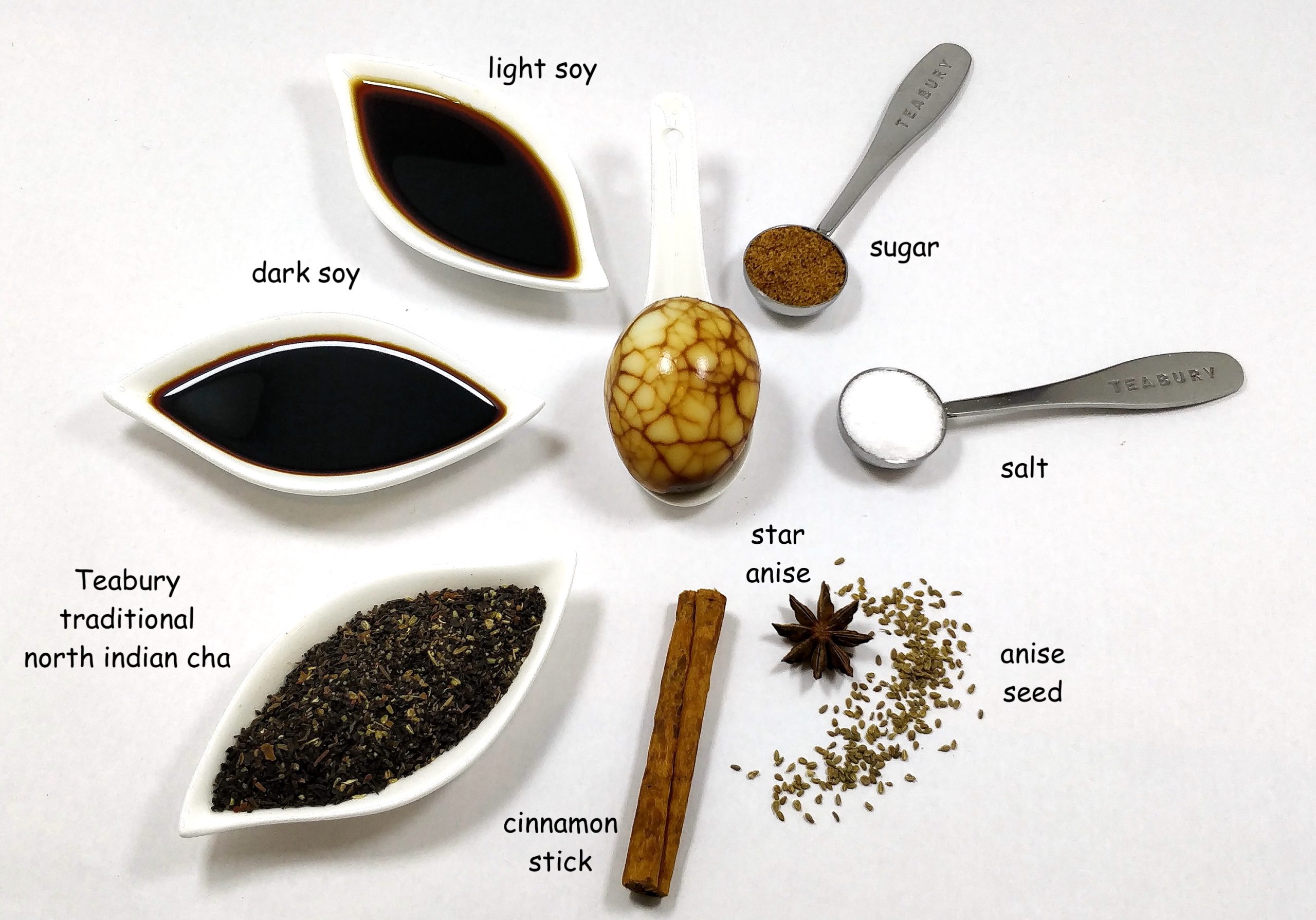
There are many benefits to Indian Cha or well known Indian Chai, please click here to read more.
Be adventurous…
Caffeine free tea
In place of Teabury Organic Traditional North Indian Cha Loose Leaf Tea you can substitute for Teabury Organic Ruby Cha Loose Leaf Tea, which has a base tea known as Rooibos, originated from South Africa and is caffeine free. Organic Ruby Cha has a slight earthy and subtle smoky flavour infused with warm spices, which together steep into the marble egg, making it taste slightly smoky, salty with warm spices. Simply delicious!
Q. What other spices can be used? Be adventurous…
You can be as adventurous as you want by adding different spices to create your very unique taste and marble egg. Why not try additional flavours such as a few cloves of garlic, inch of ginger root (this is another one of my favourites with this snack), pinch chilli flakes (to add a little ‘kick’ to the egg).
Top tip : when adding your own range of spices – for the base flavours always use tea, soy, salt and sugar. After that, anything goes really! I’d love to hear about the flavours and spices you like to use, and how this tasted for you. Just share your pictures and stories on Instagram at teabury_ltd and leave a comment. We’d love to hear from you.
Q. I am too scared to crack the egg, in case I tap it too hard and break the shell completely.
You can also choose not to crack the eggs and still follow the recipe, leaving the cracking part out. The flavours will still steep into the egg, albeit maybe not so intense as a marble egg, however the end effect will still be stunning and the taste delicious.
Good tip! … After making your first batch of eggs, you can store the leftover cooled down tea stock in an airtight container with lid (any glass jar or pottery dish) store in the fridge and use it again to steep more eggs – just add water when re-using. For your third batch of eggs I would say, add half as many spices again to enhance the flavours so that they come through to the eggs when steeped. Each time you re-steep you will get different effects of marbling, and a unique taste! No two eggs are the same.
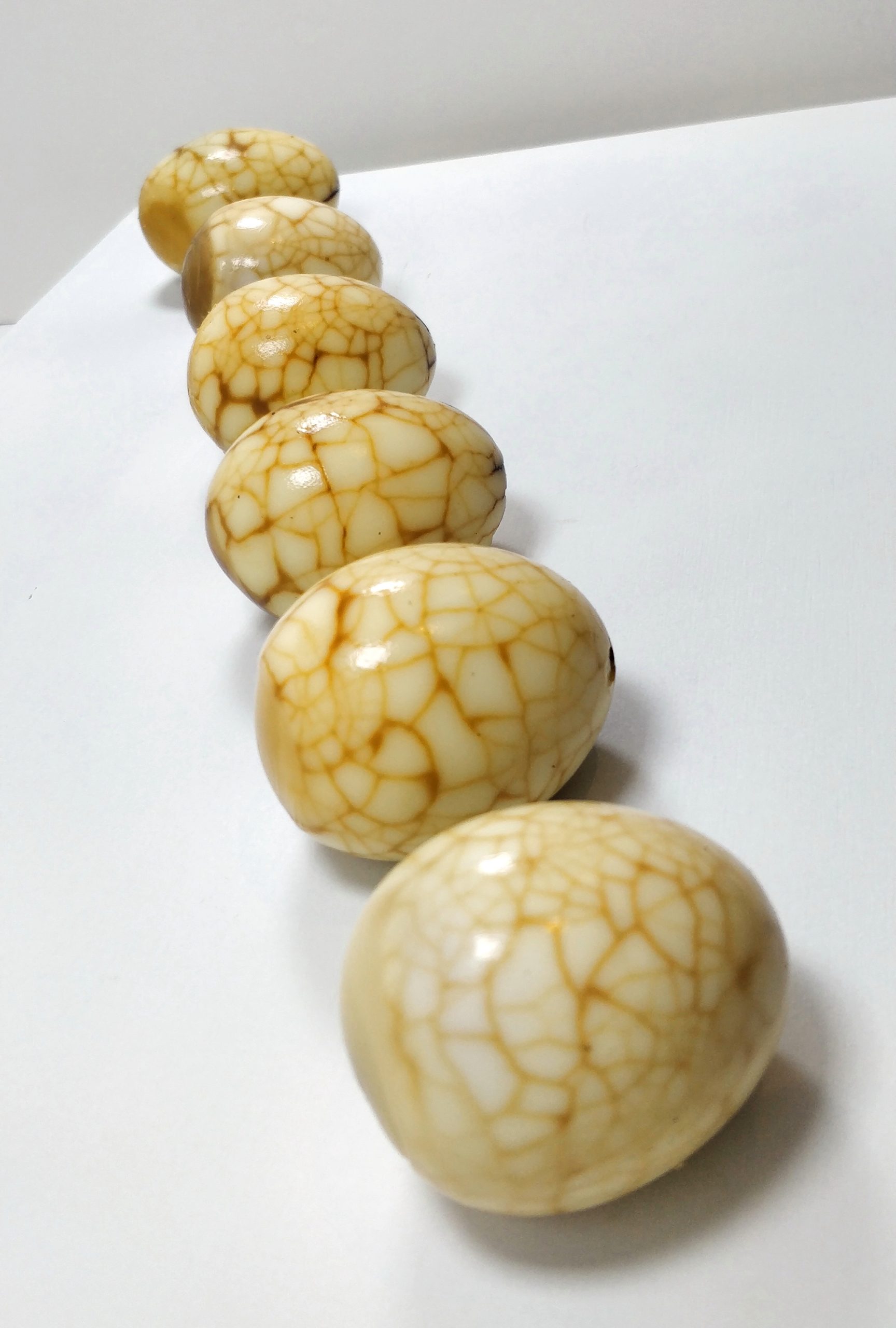
The beauty of loose leaf tea – it can be re-steeped again and again! – as a guide upto 3 steeps for good quality loose leaf tea. This means you can boil and use your tea stock again!
Marinade for meats and fish
I love this recipe because the beauty of re-steeping tea means I can use it also for meats and fish and why not?! To find out more, see recipe and ideas, we will add more recipes soon.



